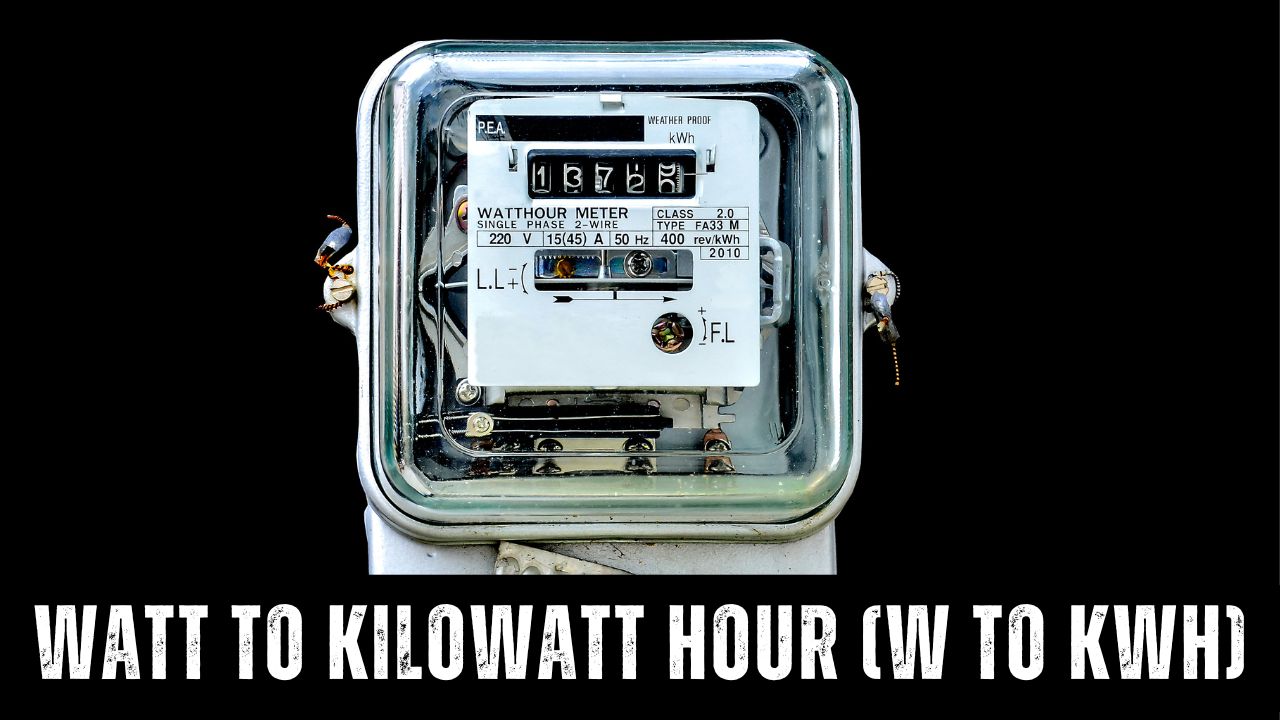Watts to Kilowatt-Hour Converter

How to Convert Watts (W) to Kilowatt-hours (kWh)
To convert Watts (W) to Kilowatt-hours (kWh), you can use the following formula:
W to kWh Calculation Formula
The energy E in kilowatt-hours (kWh) is equal to the power P in watts (W) multiplied by the time t in hours (h) and then divided by 1,000:
E(kWh) = (P(W) × t(h)) / 1,000Example Calculation
If you have a power measurement of 1,500 W and you run it for 2 hours, the calculation would be:
E(kWh) = (1,500 W × 2 h) / 1,000 = 3 kWhPower (W)
Watts (W) are the standard SI unit of power, measuring the rate at which energy is transferred or work is done. One watt is defined as one joule of energy per second. Learn more about watts and power measurements.
Time (h)
Time in hours represents the duration of power consumption or generation. It’s essential for calculating total energy usage as energy is the product of power and time.
Energy (kWh)
Kilowatt-hours (kWh) measure electrical energy consumption. One kWh equals the energy transferred when 1,000 watts of power is sustained for one hour, commonly used in electrical utility billing.
Pro Tip
Always consider the duration of usage when calculating energy consumption to get accurate results!
Watts to Kilowatt-hours Conversion Table
Formula: kWh = (W × Time in hours) / 1000
| Watts [W] | Kilowatt-hours at 1 hour | Kilowatt-hours at 2 hours | Kilowatt-hours at 3 hours | Kilowatt-hours at 4 hours |
|---|---|---|---|---|
| 1000 W | 1 kWh | 2 kWh | 3 kWh | 4 kWh |
| 2000 W | 2 kWh | 4 kWh | 6 kWh | 8 kWh |
| 3000 W | 3 kWh | 6 kWh | 9 kWh | 12 kWh |
| 4000 W | 4 kWh | 8 kWh | 12 kWh | 16 kWh |
| 5000 W | 5 kWh | 10 kWh | 15 kWh | 20 kWh |
| 10000 W | 10 kWh | 20 kWh | 30 kWh | 40 kWh |
